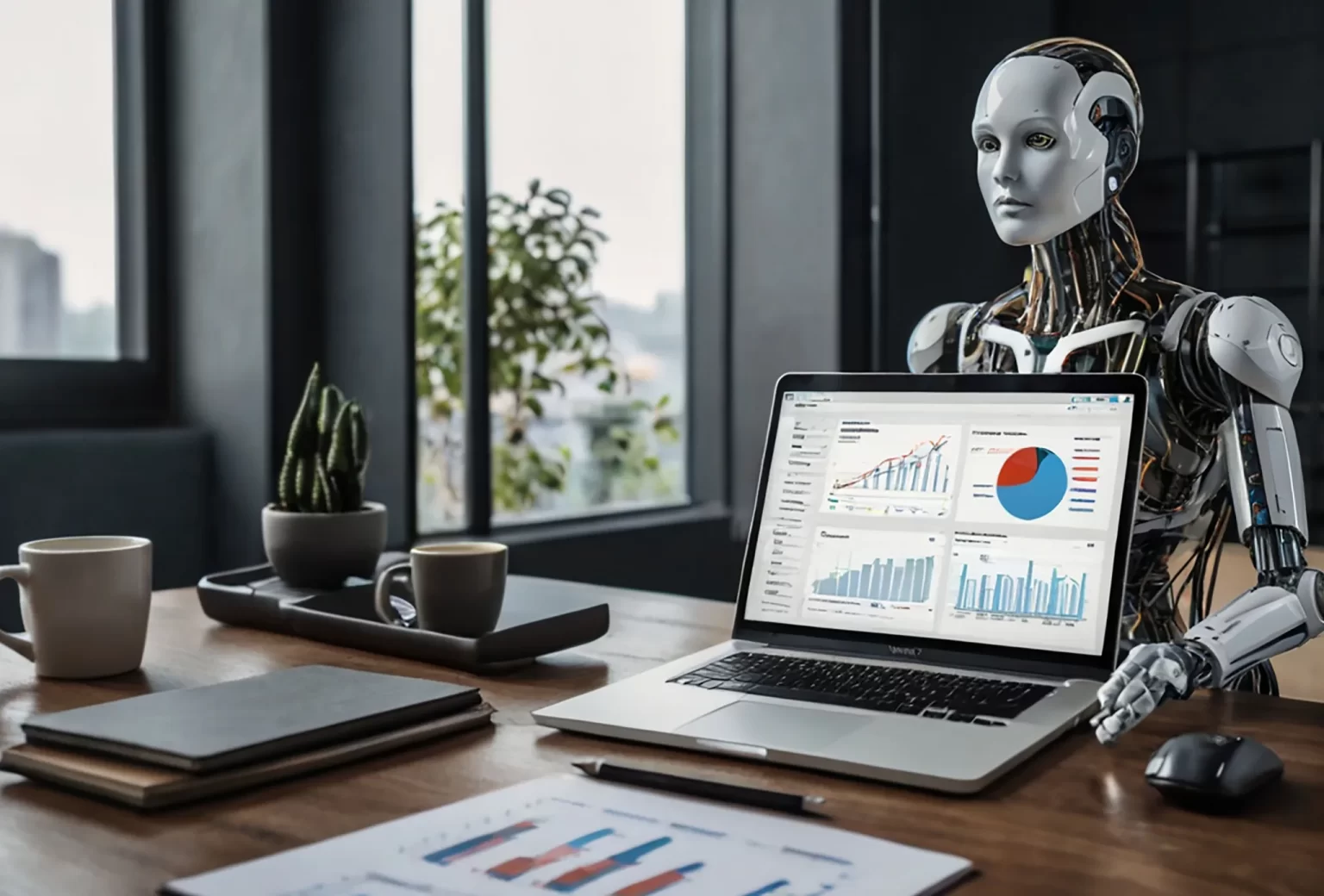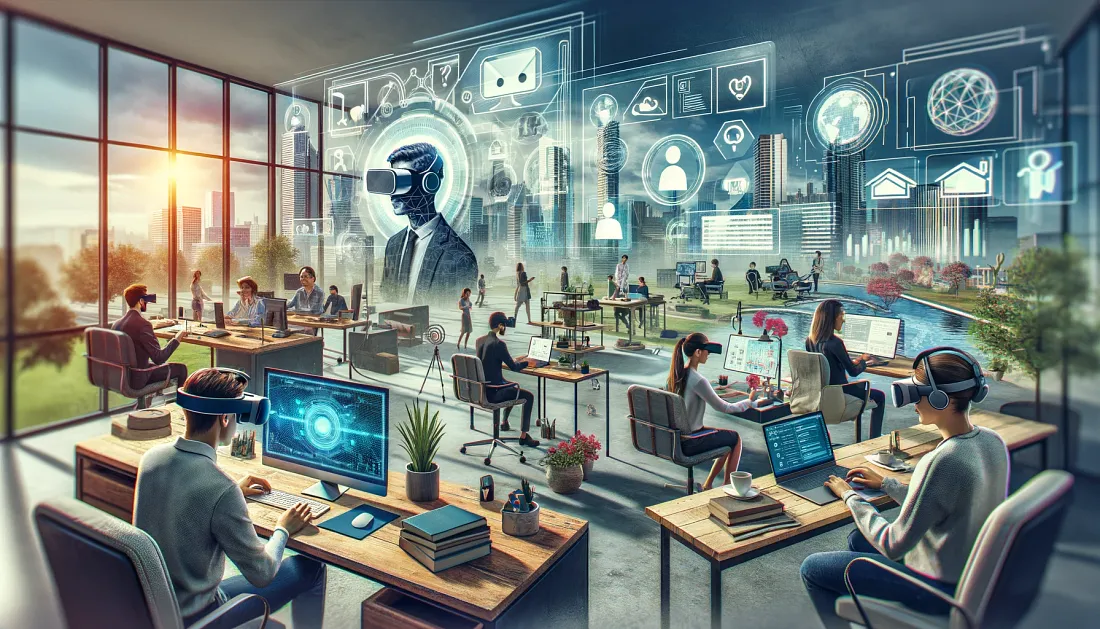Discover how artificial intelligence is revolutionizing modern technology and its key applications across industries. Artificial intelligence (AI) has emerged as a transformative force, reshaping industries, improving efficiency, and enhancing everyday life. From healthcare to retail, AI is at the core of many technological advancements, fueling innovation and driving change across the world. This article explores the significant role AI plays in modern technology, examining its applications, impact on various industries, and the challenges it presents. With insights into key areas such as healthcare, finance, education, and more, we’ll also address common questions and ethical considerations surrounding AI’s future.
Understanding Artificial Intelligence
Artificial intelligence refers to computer systems that mimic human intelligence by learning, reasoning, and problem-solving. AI encompasses a broad range of technologies, including machine learning (ML), natural language processing (NLP), computer vision, and neural networks.
Types of AI
There are generally three types of AI:
- Narrow AI: Designed for specific tasks, such as image recognition or language translation. Most of today’s AI applications fall under narrow AI.
- General AI: Theoretically capable of understanding and learning any intellectual task that a human can.
- Superintelligent AI: Hypothetical AI that surpasses human intelligence in all respects.
Narrow AI powers most current applications, but the potential for general AI and superintelligent AI is an area of active research and debate.
Types of AI and Examples:
| Type of AI | Description | Examples |
|---|---|---|
| Narrow AI | Specialized in specific tasks | Siri, Alexa, facial recognition |
| General AI | Hypothetically human-like in intelligence | Not yet developed |
| Superintelligent AI | Surpasses human intelligence | Currently hypothetical |
AI in Healthcare
The healthcare sector is one of the biggest beneficiaries of AI technology, as AI enhances patient care, diagnostics, and treatment options.
Predictive Analytics and Diagnostics: AI-driven predictive analytics are revolutionizing diagnostics, enabling earlier disease detection and more accurate predictions. For instance, algorithms can analyze vast datasets to predict the likelihood of diseases, while image recognition tools help doctors identify anomalies in X-rays and MRIs with increased accuracy.
Personalized Treatment Plans: Machine learning algorithms use patient data to create personalized treatment plans based on medical history, genetic data, and real-time health metrics. This personalized approach can improve treatment effectiveness and patient satisfaction.
AI in Finance
Artificial intelligence is reshaping the finance industry, improving decision-making processes, and enhancing customer service.
Fraud Detection: AI’s ability to analyze large datasets in real-time helps detect fraudulent activities faster than traditional methods. Algorithms can flag suspicious transactions based on patterns, reducing financial losses and enhancing security.
Customer Service and Personalization: Chatbots and virtual assistants powered by AI are revolutionizing customer service in banking. These tools offer personalized assistance, handle routine queries, and even provide financial advice, ensuring a smoother customer experience.
AI Applications in Finance and Their Benefits:
| AI Application | Functionality | Benefits |
|---|---|---|
| Fraud Detection | Analyzes transactions for irregularities | Reduces fraud, improves security |
| Chatbots | Offers real-time customer assistance | Improves response time, enhances CX |
| Algorithmic Trading | Automates trading based on data patterns | Increases efficiency, optimizes profits |
AI in Retail and E-commerce
AI is also reshaping the retail landscape, transforming how companies engage with customers and streamline operations.
Personalized Shopping Experiences: By analyzing consumer data, AI can personalize the shopping experience, recommending products based on customer preferences and previous purchases. This targeted approach enhances customer satisfaction and boosts sales.
Inventory Management: AI helps retailers manage inventory more effectively, predicting demand and optimizing s
AI in Education
The education sector is leveraging AI to create adaptive learning environments that meet individual student needs, enhancing learning outcomes.
Adaptive Learning Platforms: AI-powered platforms can assess a student’s strengths and weaknesses, tailoring content to their learning style. This customized approach promotes better comprehension and engagement.
Virtual Tutors and Chatbots: AI chatbots serve as virtual tutors, assisting students outside of class by answering questions and providing feedback. This allows for continuous learning and support, even after school hours.
AI in Manufacturing
In manufacturing, AI-driven technologies are increasing productivity, reducing waste, and ensuring higher quality standards.
Predictive Maintenance: AI helps in predictive maintenance by analyzing equipment data to predict failures before they occur, preventing costly downtime and improving operational efficiency.
Quality Control and Inspection: Machine vision systems equipped with AI can inspect products at high speeds, identifying defects more accurately than human inspectors. This enhances quality control and reduces waste in production processes.
AI Applications in Manufacturing and Their Impacts:
| Application | Purpose | Impact |
|---|---|---|
| Predictive Maintenance | Analyzes equipment for potential failures | Reduces downtime, improves efficiency |
| Quality Control | Inspects products for defects | Ensures high-quality output, reduces waste |
| Robotics | Automates repetitive tasks | Increases productivity, lowers labor costs |
Ethical and Societal Considerations
While AI offers numerous benefits, it also raises ethical and societal questions, particularly around privacy, security, and job displacement.
Privacy and Data Security: AI systems rely heavily on data, often including sensitive information. This reliance poses risks if data is mishandled or accessed by unauthorized parties. Ensuring strong data security measures and maintaining transparency is essential for responsible AI usage.
Job Displacement and Workforce Changes: AI automation can lead to job displacement in certain industries, especially in repetitive, low-skill jobs. However, it also creates new roles requiring skills in AI and data science. Education and training programs are essential to prepare the workforce for AI-driven changes.

Future of AI and Modern Technology
Looking ahead, AI’s role in modern technology will continue to expand. The integration of AI with other emerging technologies like the Internet of Things (IoT), 5G, and quantum computing promises even more transformative potential. For example, AI-powered IoT devices can provide real-time data in healthcare, while quantum computing could revolutionize data processing speed in AI models.
AI’s future is bright, but to fully realize its potential, a focus on ethical AI development, transparency, and cross-industry collaboration is essential. By balancing innovation with responsibility, we can ensure that AI continues to benefit society.
Conclusion
AI’s role in modern technology is undeniable, offering transformative solutions across industries, from healthcare and finance to retail and education. As AI technology advances, so does its ability to make our lives easier, more efficient, and more personalized. However, with these benefits come responsibilities—particularly in handling data ethically, securing privacy, and addressing workforce shifts. Moving forward, AI will continue to be at the forefront of technological innovation, shaping the future and driving positive change.
FAQs
-
What is the role of AI in modern technology?
- AI enhances efficiency, automates repetitive tasks, and provides data-driven insights across industries, revolutionizing areas like healthcare, finance, and manufacturing.
-
How does AI improve customer experience in retail?
- AI personalizes shopping by analyzing customer data, predicting preferences, and making product recommendations, which improves customer satisfaction and boosts sales.
-
What are the challenges of AI in terms of ethics and privacy?
- AI poses challenges in data privacy, as it relies on large datasets that may include personal information. Ensuring secure data handling and ethical practices is essential to maintaining user trust.
-
How is AI used in healthcare?
- AI is used for predictive diagnostics, personalized treatment plans, and analyzing patient data, which enhances patient outcomes and makes healthcare more efficient.
-
Will AI replace jobs?
- While AI may automate some repetitive jobs, it also creates opportunities in tech-related fields, emphasizing the need for reskilling and adaptation in the workforce.



